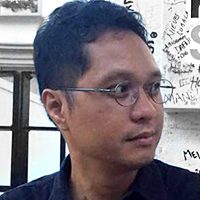SUMMARY
This is AI generated summarization, which may have errors. For context, always refer to the full article.
![[OPINION] Disheartening but unsurprising: On the 2019 midterm elections](https://www.rappler.com/tachyon/r3-assets/B1F8D5430D78478F90EF00BEDDB3BE21/img/33B35913333545E6BDBC9E6781469344/20190526-imho-francis-isaac.jpg)

Two things are immediately apparent from the Philippines’ latest batch of senators-elect: (1) that none of them came from the opposition; and (2) that those who won were either close associates of President Rodrigo Duterte or were already well-established names in Philippine politics.
These results are disheartening, but they are also unsurprising. After all, despite the promise of real change in 2016, the conditions still favor traditional politicians. This is so since the current system still provides immense advantages to candidates with money, name recall, or both. In a winner-take-all, first-past-the-post electoral system where voters choose from a list of individual candidates, campaigns are bound to emphasize a candidate’s personal attributes rather than focus on programs or platforms.
Unfortunately, the opposition (with the exception of Bam Aquino and Mar Roxas) have no previous sustained national exposure which is vital in generating name recall. In fact, for most of the candidates in Otso Diretso and Labor Win, the 2019 elections was their first sustained national exposure.
This flaw in the electoral system can be remedied by adopting the system of proportional representation wherein voters choose a party and not an individual candidate on the ballot, and then parties are allocated seats in the legislature based on the percentage of votes that they have gathered. But this would require changing the 1987 Constitution…and there’s the rub! The leaders of the Liberal Party (LP) see the present Constitution as sacrosanct and therefore inviolable, and any alteration in this most sacred of documents is horror beyond measure.
Ironically, most of the civil society groups that supported Noynoy Aquino in 2010 not only wanted to end the corruption and abuse of the previous Arroyo administration, but they were also painfully aware of the need to address the systemic flaws in our political system. But constitutional reform never became a priority of the Aquino presidency. Roxas, during a national reform summit in 2014, also confidently declared that the only requirement for successful reforms is outstanding leadership, and the Aquino government has plenty in reserve. That was then. Now, the husband of Korina Sanchez is inheriting the wind.
At the same time, Duterte is extremely popular, with his administration getting a record-high +72 net satisfaction rating for the 1st quarter of 2019, based on a Social Weather Stations survey. Given his high numbers, most parties and candidates have gravitated towards the President, thereby further isolating the LP, at least among elite political circles. And with the government under their control, Duterte and his allies were able to easily outspend and drown out the opposition.
Viewing the elections from a theoretical standpoint, world politics is now characterized by what political scientist Marc Plattner describes as the “closing of the Cold War period” and the “petering out of the third wave of democratization” (“The Third Wave Peters Out,” 2014).
The third wave is a concept introduced by Samuel Huntington which asserts that democratic transitions occur in several countries within a given historical period. In Huntington’s estimate, the third wave started in 1974 with the fall of the Salazar regime in Portugal.
But Huntington also argued that a democratic wave is followed by an authoritarian reverse wave. With the rise of populism worldwide and growing assertiveness of authoritarian regimes everywhere, it is possible that we are now entering the reverse wave period – the Philippines included.
If Plattner’s analysis is correct and the third wave has indeed petered out, then the lovers of democracy have a long fight ahead of them.
But all is not gloomy. One bright spot in the election is that it showed new leaders who are here for the long fight against populism, such as human rights lawyer Chel Diokno, Moro civic leader and former bakwit (evacuee) Samira Gutoc, as well as labor organizer Ka Leody de Guzman. These are the leaders who have shown willingness to stake everything for the Filipino.
I admit, the situation is both difficult and extremely challenging. But I see no reason for us to turn our backs and give up on the country. – Rappler.com
Francis Isaac is a graduate student at De La Salle University. He is completing his thesis on local peasant movements in Indonesia and the Philippines.
Add a comment
How does this make you feel?
There are no comments yet. Add your comment to start the conversation.